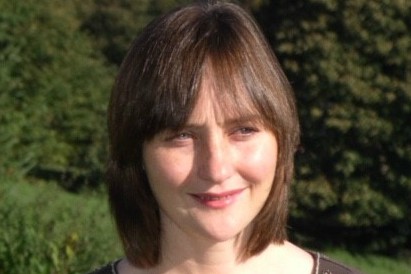Our GP safeguarding peer support network is helping vulnerable families


I have always been passionate about safeguarding and believe GPs have an important role in protecting vulnerable adults and children. If we are alert to the possibility of risk, and act promptly to direct people to support services, we have the opportunity to avert a crisis. This is better for both families and our over-burdened social care system.
GPs can make an important difference by using their influence and local knowledge. Our practice in South Wales has set aside a room in the surgery where people bring outgrown children’s clothes, toys and books. Families arriving at the local women’s refuge have often left their homes so abruptly that children arrive with nothing, wearing just their pyjamas.
Since the refuge closed, school welfare officers suggest which families are most in need.
Our parcels address the practical needs of families, but also allow them to feel cared about at a time of highest anxiety and lowest self-esteem.
Sharing best practice
Safeguarding in primary care is critically important, but it’s a hard job. Doing it well can be challenging and isolating. You balance the possibility of leaving a vulnerable person at risk of harm, against intervening unnecessarily and placing stress on an already struggling family.
As a GP appraiser I recognise there is considerable variation in practice – many doctors are doing brilliant, innovative things to protect their patients while others are doing much less. In an attempt to address this I created a support group of local primary care leads. Our aim is to ensure that all practices are actively managing their vulnerable patients to the same high standard. We meet regularly to share best practice, discuss difficult cases in a confidential environment, and reduce workload by sharing protocols and presentations. Through these meetings we gain safeguarding accreditation in a way that ensures the learning has a local and primary care focus. The meetings are multidisciplinary with the local safeguarding lead nurse attending to offer her expertise and advice.
Learning across borders
A similar – albeit formalised – scheme is well-established across England, but currently we have nothing like this at a national level in Wales. I am hoping to adopt the benefits from the English system, while adapting the structure to avoid meetings becoming too formal or prescriptive. We have the support of the Welsh Government and I plan to roll the model out across Wales.
GPs particularly value the opportunity to discuss complex, ambiguous cases with a network of peers offering their expert advice and support. In the peer group meeting, we are able to challenge one another’s decision-making in a constructive way and often many varying opinions are expressed, enabling us to develop the best plan for complex cases. We discuss an average of five cases at each meeting, but we also revisit previous cases – as these complex situations often evolve with time, the learning continues.
Avoiding the ‘nuclear option’
As cluster safeguarding lead, I am working towards the highest level of safeguarding accreditation and am able to offer informal advice whenever needed to the rest of the group. One doctor explained that he preferred speaking informally and confidentially to me as a peer before taking the ‘nuclear option’ of informing social services. My hope is that the group will increase doctors’ resilience while improving safeguarding practice.
We have found that creating an environment where GPs from different practices meet regularly strengthens relationships and has improved our ability to work collaboratively in other areas.
Developing professional confidence
The truth is that safeguarding is everyone’s business, but in primary care we have a unique opportunity to recognise issues and alert relevant organisations. We should never assume that someone else is going to sort a problem out, or feel that we are too busy or insufficiently confident to address concerns.
Safeguarding is not just about recognising the signs of abuse and knowing what to do, but also about developing the professional confidence to apply judgement in everyday situations. Sharing best practice informally ensures that we can all better recognise when and how best to intervene. We simply cannot ignore safeguarding – and our interventions can make a huge difference to the life of a vulnerable adult or child.
Rowena Christmas is a GP in Monmouthshire, Wales, a representative at RCGP UK Council and a Bevan Exemplar focusing on promoting GP Safeguarding
Visit Pulse Reference for details on 140 symptoms, including easily searchable symptoms and categories, offering you a free platform to check symptoms and receive potential diagnoses during consultations.









